
WATCH & DISCUSS:
SHORT FILMS, GREAT IDEAS
A FILM CRITICAL VIEWING PROGRAM FOR MENTAL HEALTH
The nationwide film critical viewing program "I Watch and Discuss: short films, big ideas" returns with new films focusing on mental health. Following the program’s great success in 2023–2024 — implemented in over 157 school classes across Greece, with films addressing diversity and racism — we are now applying the same methodology to a new set of films that approach themes of mental resilience from different perspectives.
The films were selected by Maria Leonida, filmmaker and educator; Ioanna Katsiafliani, psychologist and program advisor; Koula Panagou, educator specializing in play therapy; and Chryssa Tsalafouta, philologist and cultural manager.
The goal of the program is to create a safe and creative space in the classroom where students can explore their emotional well-being through art.
To participate in the program, join the informative webinar we are organizing on Wednesday, October 22, 2025, from 18:30 to 20:00, where we will present the materials and steps of “I Watch and Discuss.”
The project is implemented under the auspices and support of the Ministry of Culture and with the funding of the Stavros Niarchos Foundation (SNF).
For any questions, please contact us at:
📧 screeningskarpos@gmail.com
📞 +30 6949404003
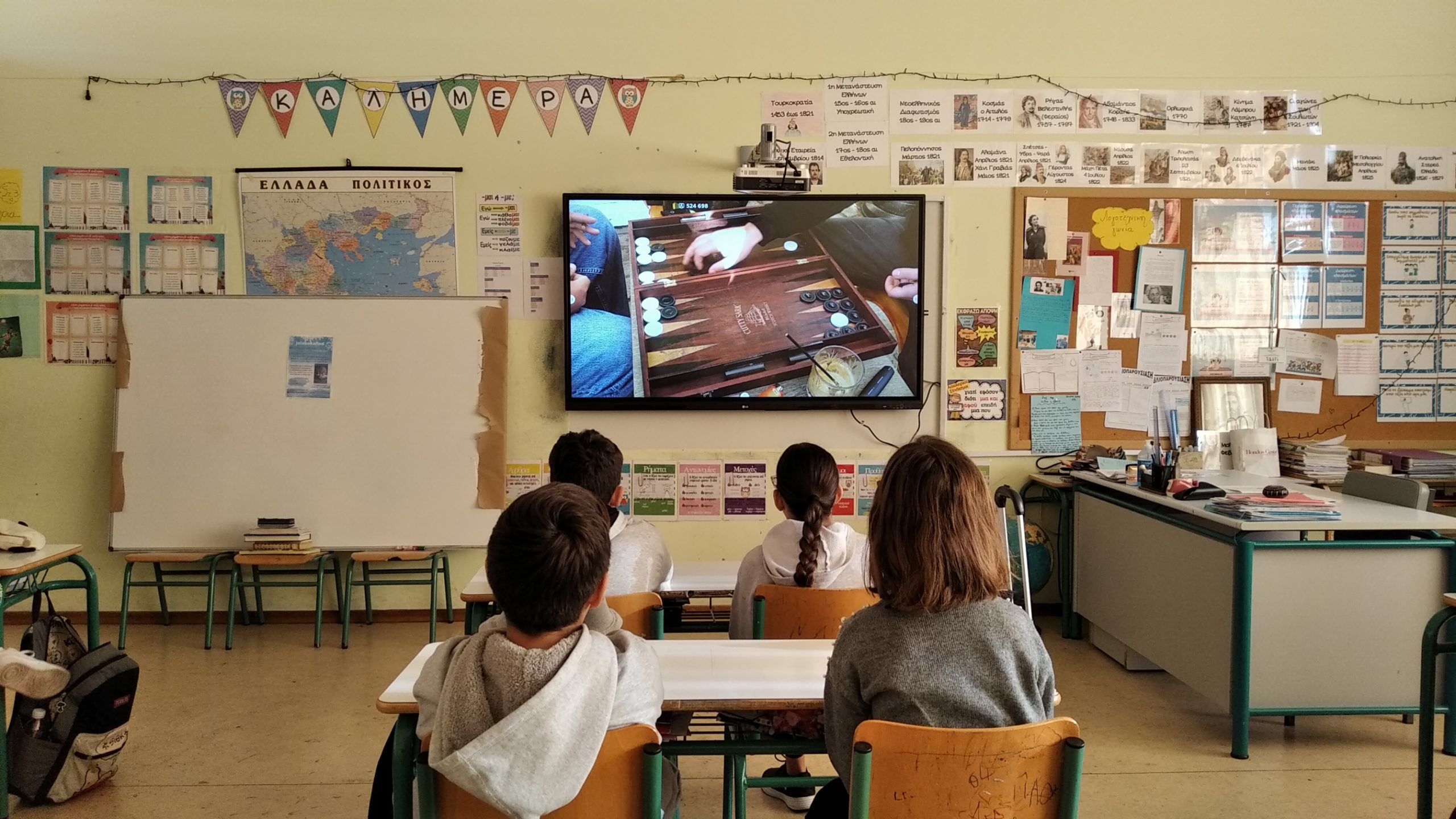
The Structure
- 1. Screening of 5 short films with a total duration of 28 minutes. They can be shown with 1–2 minute pauses between them for discussion. It is recommended that the screening take place in a darkened room (using a projector and an internet connection where possible).
- 2. Discussion – Voting: Duration: 45 minutes. Students–viewers discuss in small groups (2 or 3 students) and decide on their answers to specific questions — both open-ended and multiple-choice — relating to the content of the films, the storytelling through images, and the different thoughts and emotions they evoke. The voting, therefore, includes questions that go beyond simple ranking such as “1st, 2nd, 3rd,” etc. Sample questions: ✔ Which film would I immediately send to a friend to watch? ✔ Which was the most unusual film that “sparks discussion”? Process: The voting takes place online through an interactive platform (if internet connection is difficult, it can be conducted on paper and later transcribed onto the platform).
- 3. Karpos will offer two webinars on the methodology, the framework for creating the films, and clarifications regarding the coordination of the activity. The responsible teachers/coordinators will receive digital certificates of participation.
- 4. The results of the votes will be immediately sent to the teacher, so they can discuss them with the students if they wish. Afterwards, they will be posted on our website.
- 5. Optionally, either as homework, we suggest two types of artistic expression — one based on writing and one on cinematic storytelling — with the help of tutorials and guidance provided by Karpos. Specifically: ● Individual writing of a film review for one of the program’s films (up to 300 words). ● Group production of a short film using a low-cost animation technique.
- 6. In April 2026, a Closing Ceremony of the program will take place in Athens, where the best group projects (film reviews and short films) will be awarded. There will also be a screening of the films that received the most votes from across the country, and the national voting results will be presented!
Who can participate?
-
A single class section or an entire school class, guided by at least one teacher/coordinator.
-
Students from different classes, e.g., a club or interest group.
-
An informal group (e.g., scouts, a cultural club, an association, etc.).
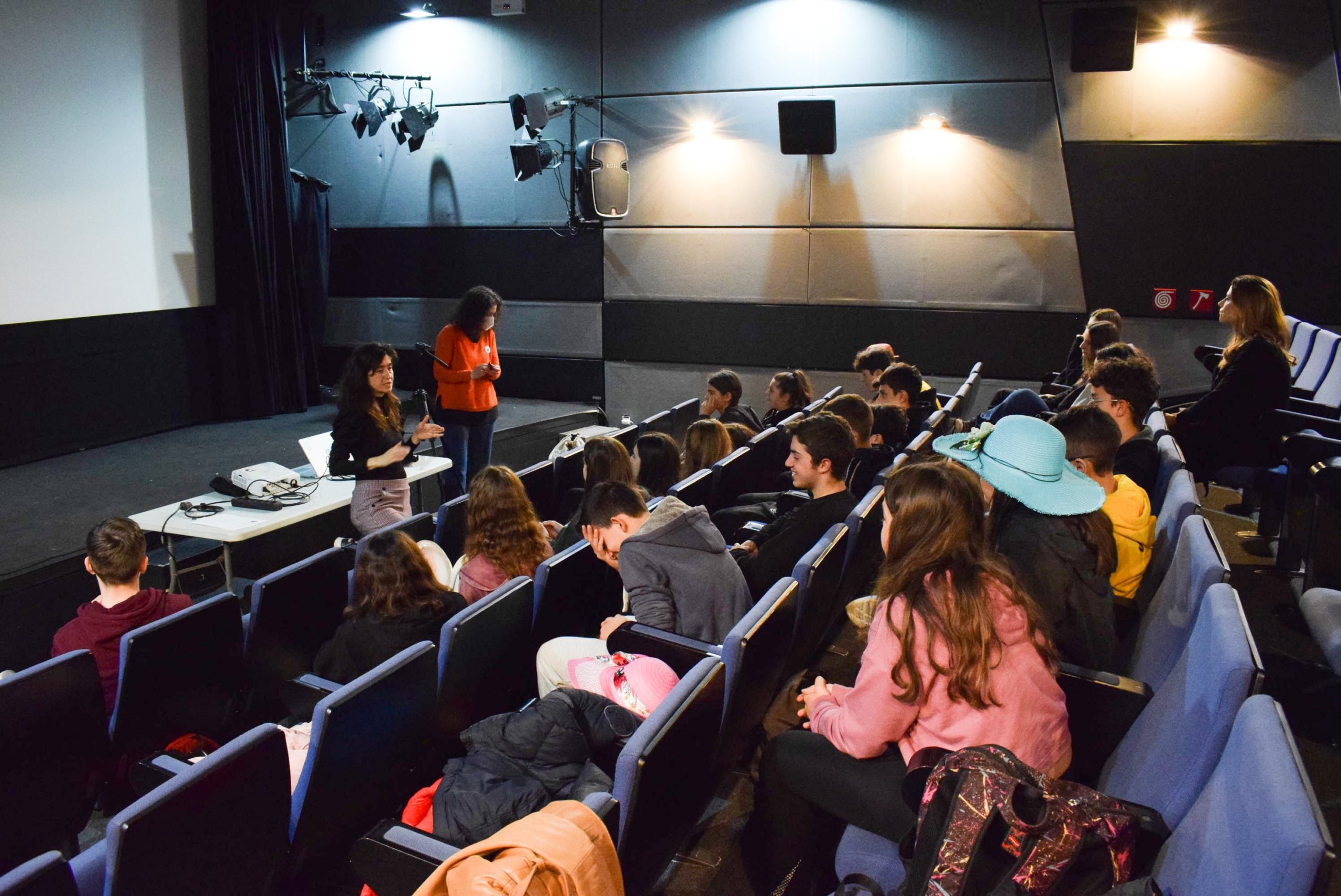
Why should your school participate?
The program can be implemented anywhere in Greece, offering children both inside and outside urban centers the opportunity for creative communication, discussion, collaboration, and critical viewing. Students will engage experientially in a unique discussion process aimed at fostering film literacy.
Objectives:
The program familiarizes students with the audiovisual language, which is highly relevant in today’s world.
Specifically, it helps them to:
-
Develop their relationship with cinema through the flexible format of short films.
-
Enhance image-reading skills and delve into short narratives.
-
Participate in an equitable, creative discussion on contemporary social issues, presenting arguments and perspectives.
-
Cultivate teamwork and negotiation skills through collective processes.
-
Engage in the production of information and develop critical approaches to mass media.
Each teacher can participate in creative dialogue with their class, while simultaneously fostering a sense of shared experience with other groups across Greece. This can spark further collaborations and remote communication between schools and groups.
The selected films
1. In between (2012) | Animation, 3’
Directors: Alice Bissonnet, Aloyse Desoubries Binet, Sandrine Han Jin Kuang, Juliette Laurent, Sophie Markatatos
Synopsis: A young woman is troubled by… a crocodile that follows her everywhere, disrupting her daily life. She tries in every possible way to get rid of it and free herself from the things that hold her back.
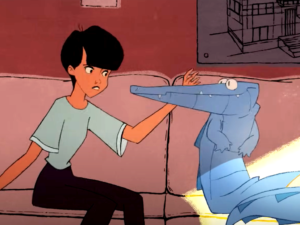
2. A Sound of Mine (2019) | fiction, 5'
Director: Jaime Olias
Synopsis: An autistic boy wears headphones to block out the sounds of the outside world, calming his anxiety. When he realizes that the only sound he can hear underwater is his own heartbeat, he discovers a hidden talent. The film has been awarded by the European Commission.
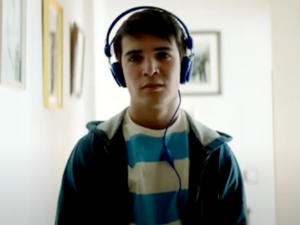
3. Weathered (2024) | documentary & animation, 5'
Director: Patrick Jang
Synopsis: Two teenage girls openly share personal stories of struggle, resilience, and coming of age in a documentary that highlights the incredible strength of young people to overcome their turbulent inner battles.
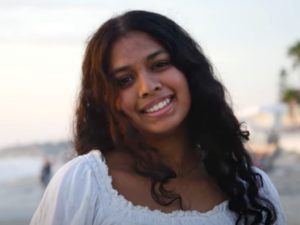
4. Searching for Ways (2025) | Documentary, 5’
Directors: Collective, 1st Gymnasium of Tavros & 12th Gymnasium of Kallithea
Synopsis: Thirteen students, through an audiovisual workshop, talk about their anxieties and dreams, ask questions, and become documentarians themselves, discovering how today’s youth manages their concerns.
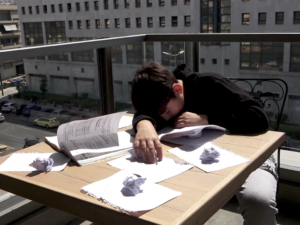
5. Why Can’t We Just Be Ghosts? (2025) | fiction, 9'
Director: Patrick Jang
Synopsis: Why can’t we just be… ghosts? The film explores the relationship between a depressed ghost and their best friend. Through their conversations, they ponder what it means to be alive and how one should live their life.

Meet the team

Maria Leonida
Film Director - Art Director of the program

Ioanna Katsiafliani
Psychologist
Koula Panagou
Educator - Teacher's Coordinator
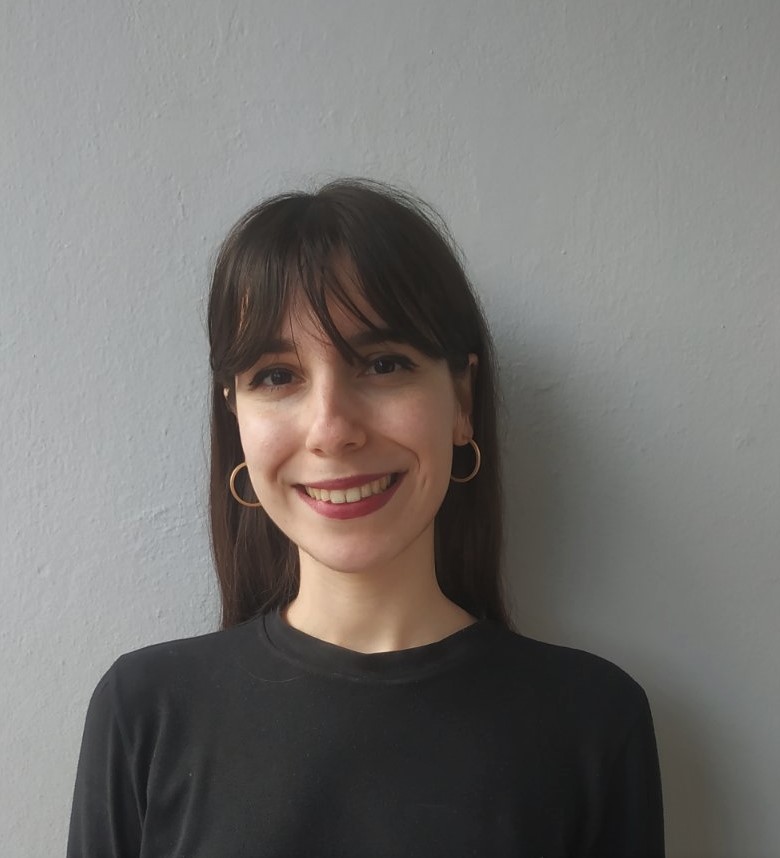
Chrysa Tsalafouta
Philologist - Cultural Manager


